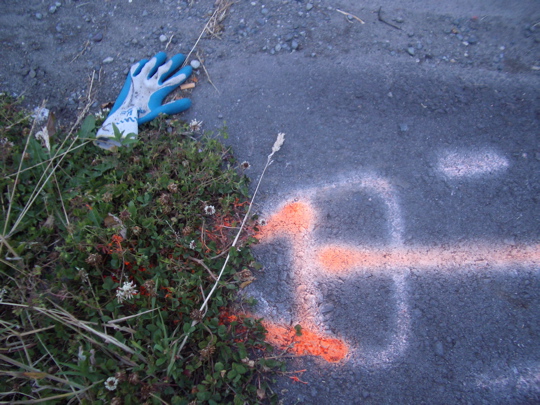July 31, 2005
Very Bad Deaths by Spider Robinson
 Another Endeavour contestant, though I'd already bought a copy so I would have read this one anyway.
Another Endeavour contestant, though I'd already bought a copy so I would have read this one anyway.
Spider Robinson has been stuck in sort of a rut for 20 years, but it's a rut that I like. Almost all of his books depict lovable misfits who save the world through luck (often bad), hard work, inspiration, and getting psychic. The threat changes, but the pattern of figuring out the solution doesn't vary in flavor all that much. In Very Bad Deaths, the threat is from the king of all psychopaths who's got a nasty plan that must be foiled. The foilers are an aging suicidal newspaper columnist, his college friend nicknamed "Smelly" who has discovered the plot (through means which are a spoiler despite the fact that the jacket copy describes them in detail. Don't read the jacket copy! Of any book. At least until you're done with the book.), and a woman they enlist who's a cop.
What makes Spider's books fun, though, is the outrageous details he weaves into these tall tales, and the way he makes it seem reasonable that real-seeming people make intuitive leaps that belong in a Heinlein novel. If you like Spider's stuff you'll like this book. If you haven't read him before you might like this book if a humorous SF thriller sounds like fun. If you're one of the many people who got tired of Spider's schtick a long time ago, it's not safe to come back yet. As I'm in the first group, I had a ball reading this book.
The Secrets of Jin-Shei by Alma Alexander
 Third book I read for the Endeavour Award. This one was refreshing for being a stand-alone novel. It's set in a fictional land modelled on Imperial China. The story revolves around a number of women whose connection is the "jin-shei" of the title, a sort of formalized friendship bond.
Third book I read for the Endeavour Award. This one was refreshing for being a stand-alone novel. It's set in a fictional land modelled on Imperial China. The story revolves around a number of women whose connection is the "jin-shei" of the title, a sort of formalized friendship bond.
I really enjoyed the book. The characters, while not all likable, were all interesting and had plausible and sympathetic arcs. The book covers nearly the entire lives of the different women with their various interlocking relationships. The magic in the book wasn't typical fantasy magic and was used consistently and responsibly (no "good thing I know the spell to save the day!" deus ex magica cop outs). My only quibble is that it could have been 100 pages shorter without sustaining too much harm. The overall effect is sort of Divine Secrets of the Ya-Ya Sisterhood in Imperial China. Worth reading if that sounds at all appealing to you.
July 30, 2005
Dragon and Soldier by Timothy Zahn
 This is the second book I read for the Endeavour Award. It's the second book of an open-ended series about young Jack Morgan who in the first book (Dragon and Thief which I have not read) seems to have teamed up with a K'da named Draycos. The K'da are aliens with two modes of operation. They look like what we'd call a dragon when operating autonomously, but have to spend some portion of their time attached to a host in which mode they appear two-dimensional, almost like a tattoo on the host's body. Jack is an extremely independent though somewhat amoral (in the sense that he's been operating as a con man with his (now deceased, though still around as an AI) uncle for most of his life) fourteen-year-old while Draycos is an adult "Warrior Poet" who follows a strict moral code.
This is the second book I read for the Endeavour Award. It's the second book of an open-ended series about young Jack Morgan who in the first book (Dragon and Thief which I have not read) seems to have teamed up with a K'da named Draycos. The K'da are aliens with two modes of operation. They look like what we'd call a dragon when operating autonomously, but have to spend some portion of their time attached to a host in which mode they appear two-dimensional, almost like a tattoo on the host's body. Jack is an extremely independent though somewhat amoral (in the sense that he's been operating as a con man with his (now deceased, though still around as an AI) uncle for most of his life) fourteen-year-old while Draycos is an adult "Warrior Poet" who follows a strict moral code.
I enjoyed the premise that I've just laid out, and the characters were well enough drawn that it was fun getting to know them better through the course of the book. The plotting left something to be desired, though, with the whole rationale of the events in the book feeling contrived. Maybe I was just missing something from not having read the first book.
July 29, 2005
Sunny side up

I must confess that I did place that egg carton in that patch of sunshine fully expecting that a certain cat would not be able to resist its charms. And, hey look, cuteness!
And if that isn't enough cuteness, Lance Arthur has written some very funny (and extremely profane) songs for his cat, Paris: Paris Songs and Songs for Paris
July 26, 2005
Lost mitten sleeping bag
Karina Bergmans of the always entertaining art blog Kaleidoscope Art made a sleeping bag out of lost mittens she found around Candada (mostly Toronto, Montreal, and Ottawa, I think). Last weekend she got a chance to try it out on a camping trip.
July 25, 2005
Hey look, I'm famous!
My name appears in an update to a post on über blog Boing Boing!
The post is about the cutesy art used on some Japanese condom packaging. I was able to point out that one of the packages is a remix of a Kit Kat candy bar wrapper. There's nothing of a NSFW (not safe for work) nature in that post, so you can go look. Some of the package designs are pretty funny.
I also managed to get in the fact that US Kit Kats (made by Hershey) aren't nearly as good as Canadian Kit Kats (made by Nestle, as are the Kit Kats in every other country.)
I was delighted to discover, while looking for a graphic to illustrate the similarity (Xeni chose her own, I must add) that Wikipedia has a page about Kit Kat.
(Other posts on this blog talking about Kit Kats: Niagra! and Hershey, PA. I'm pretty sure I picked up the "Canadian Kit Kat = Good" meme from tyd.)
July 22, 2005
July 18, 2005
Consequences by Kristine Kathryn Rusch
 Back in early May I heard that the Endeavour Award was looking for readers. The Endeavour is an award given for a work of speculative fiction published by a writer from the Pacific Northwest. The process for the award requires that each eligible nominated book be read by five or seven preliminary readers who each rate the book in a number of different categories. These ratings get distilled down to a numerical score which is used to trim the field down to a half-dozen finalist books which are then judged by a panel of three professional writers. I signed up to be a preliminary reader, so this and the next several book reviews are of books I might not necessarily have chosen on my own, but were read closely for a good cause.
Back in early May I heard that the Endeavour Award was looking for readers. The Endeavour is an award given for a work of speculative fiction published by a writer from the Pacific Northwest. The process for the award requires that each eligible nominated book be read by five or seven preliminary readers who each rate the book in a number of different categories. These ratings get distilled down to a numerical score which is used to trim the field down to a half-dozen finalist books which are then judged by a panel of three professional writers. I signed up to be a preliminary reader, so this and the next several book reviews are of books I might not necessarily have chosen on my own, but were read closely for a good cause.
Consequences is part of Rusch's "Retrieval Artist" series. It appears to be the third volume in the series, but I was able to keep up pretty well despite not having read the prior volumes. The book is a hard-boiled detective story set in a city on our moon. Miles Flint is an ex-cop turned retrieval artist, which is an occupation that takes some explaining. The setting is a future where we've made contact with multiple alien species. In such a diverse cultural mix, humans can run afoul of obscure alien laws. If humans think the law is unjust or the penalty too severe or something, the offender can go into a kind of witness relocation program where they're disappeared off to some obscure corner of the galaxy to hide and wait hoping to outlive the statute of limitations or the race they've offended. Retrieval artists are sort of reverse bounty hunters who track down a disappeared person when it's safe for them to come back to their old lives.
Flint's case in this book gets mixed up with a murder for which he feels some degree of responsibility, so he tries to solve the case bringing him into conflict with his old partner, Noelle DeRicci. To complicate matters, the investigation happens in parallel with a summit meeting between some warring races. As the story unfolds, we find out that this confluence of events is not exactly a coincidence.
All the interlocking events in the book have a nice feeling of realistic complexity, and not everything ties together cleanly. There are some reasonable coincidences and some reasonable random events that make the overall plot feel more like real life than a styilized story. And if some of the plot uncomfortably brings to mind some of our real world current events, I can forgive Ms. Rusch since she went to reasonable pains to keep things from being too parallel.
July 15, 2005
July 13, 2005
Lost Glove #54

I had an "off-site meeting" this afternoon and ran across this specimen on my way back from the park^Wmeeting.
In other lost-glove-related news, there's another lost glove blog out there. Mange Tout's Lost Gloves seems to be London-based despite the Francophone alias. It's amazing how little the style of gloves found varies across national boundaries.
Update: Mange Tout kindly informs me in comments that my location guess was off by 70 miles with the real location being on the south coast of England.
July 10, 2005
Lost Glove #53

We went to a friend's art installation on Beacon Hill and saw this on the way from the bus to the gallery.




